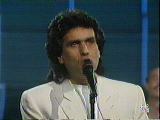 The 1990 contest was staged in Zagreb, Yugoslavia,
with the same 22 participants as the previous year. The only major change was that the
“postcards” between the songs showed the artists in the country they represented. This
had not happened since 1982. The winner of the Grand Prix was well-known artist Toto
Cutugno representing Italy with the song "Insieme 1992". The 1990 contest was staged in Zagreb, Yugoslavia,
with the same 22 participants as the previous year. The only major change was that the
“postcards” between the songs showed the artists in the country they represented. This
had not happened since 1982. The winner of the Grand Prix was well-known artist Toto
Cutugno representing Italy with the song "Insieme 1992". |
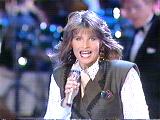 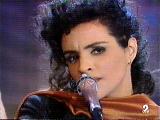 In the 1991 contest the number
of participants was the same as in 1990, except that the Netherlands did not participate
due to their national Remembrance Day which opened the way for Malta to join. The contest
was held in Rome. Unlike the previous year, the postcards between the songs showed
monuments of the host city with the artists who were to feature next in the contest
singing a well-known Italian song. Problems occurred, partly because one of the
presenters, Toto Cutugno, had language difficulties and appeared not to have fully grasped
the voting procedure and partly for technical reasons. This resulted in Mr. Frank Naef,
the European Broadcasting Union scrutineer at the time, having to take over during the
voting session. That year, the Grand Prix was won by two countries, France with
"C'est le dernier qui a parlé qui a raison", performed by Amina, and Sweden
with "Fangad av en stormvind" sung by Carola. The rules stipulating that in case
of a tie for the first place, the country which obtained the highest score the most often
(12 points, 10 points and so on) would win, Sweden did it. In the 1991 contest the number
of participants was the same as in 1990, except that the Netherlands did not participate
due to their national Remembrance Day which opened the way for Malta to join. The contest
was held in Rome. Unlike the previous year, the postcards between the songs showed
monuments of the host city with the artists who were to feature next in the contest
singing a well-known Italian song. Problems occurred, partly because one of the
presenters, Toto Cutugno, had language difficulties and appeared not to have fully grasped
the voting procedure and partly for technical reasons. This resulted in Mr. Frank Naef,
the European Broadcasting Union scrutineer at the time, having to take over during the
voting session. That year, the Grand Prix was won by two countries, France with
"C'est le dernier qui a parlé qui a raison", performed by Amina, and Sweden
with "Fangad av en stormvind" sung by Carola. The rules stipulating that in case
of a tie for the first place, the country which obtained the highest score the most often
(12 points, 10 points and so on) would win, Sweden did it. |
 In the 1992 contest, the number of participating
countries increased to 23, with the return of the Netherlands. The postcards were changed
again, with the country presentations showing Sweden’s most popular beauty spots. The
winner of the contest was Ireland, with "Why me" performed by Linda Martin. The
song and music were written by Johnny Logan, who became the first artist to win the
contest three times. In the 1992 contest, the number of participating
countries increased to 23, with the return of the Netherlands. The postcards were changed
again, with the country presentations showing Sweden’s most popular beauty spots. The
winner of the contest was Ireland, with "Why me" performed by Linda Martin. The
song and music were written by Johnny Logan, who became the first artist to win the
contest three times. |
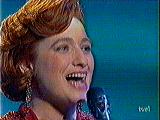 The 1993 contest saw major changes, with three
new countries joining the show. Three of the former Yugoslavian republics which had
proclaimed their independence – Bosnia-Herzegovina, Croatia and Slovenia –
swelled the number of participants to 25. The postcards showed each country’s
artists filmed in Ireland’s most renowned beauty spots, which they had visited during
the rehearsal week. That year the host broadcaster of the contest became the winner for
the fifth time with the song "In your eyes", performed by Niamh Kavanagh and her
vocalists. The 1993 contest saw major changes, with three
new countries joining the show. Three of the former Yugoslavian republics which had
proclaimed their independence – Bosnia-Herzegovina, Croatia and Slovenia –
swelled the number of participants to 25. The postcards showed each country’s
artists filmed in Ireland’s most renowned beauty spots, which they had visited during
the rehearsal week. That year the host broadcaster of the contest became the winner for
the fifth time with the song "In your eyes", performed by Niamh Kavanagh and her
vocalists. |
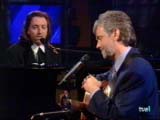 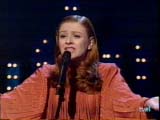 Unlike
past host broadcasters who had won the contest twice in a row, Ireland decided to play
host again in 1994. Even with the withdrawal of such countries as Belgium, Denmark,
Israel, Italy, Luxembourg, Slovenia and Turkey, the number of participants remained the
same. They were replaced by newcomers Estonia, Hungary, Lithuania, Poland, Romania, the
Russian Federation and Slovakia. For the third time in a row Ireland was the winner of the
Grand Prix, with an all-time record of 226 points for the song "Rock'n roll
kids" performed by Paul Harrington and Charlie McGettigan. Unlike
past host broadcasters who had won the contest twice in a row, Ireland decided to play
host again in 1994. Even with the withdrawal of such countries as Belgium, Denmark,
Israel, Italy, Luxembourg, Slovenia and Turkey, the number of participants remained the
same. They were replaced by newcomers Estonia, Hungary, Lithuania, Poland, Romania, the
Russian Federation and Slovakia. For the third time in a row Ireland was the winner of the
Grand Prix, with an all-time record of 226 points for the song "Rock'n roll
kids" performed by Paul Harrington and Charlie McGettigan. |
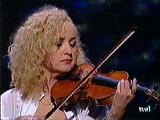 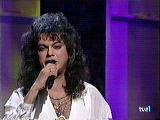 In 1995, Ireland
became the only country to be host broadcaster for a third time. With the withdrawal of
Estonia, Finland, Lithuania, the Netherlands, Romania, Slovakia and Switzerland, the
number of participants would have decreased to 18, but the return of Belgium, Denmark,
Israel, Slovenia and Turkey brought the number back to a respectable 23. Christine Marchal
took over the coordination of the contest at the EBU Permanent Services. The Grand Prix
was awarded to Norway with the song “Nocturne”, performed by Secret Garden. . In 1995, Ireland
became the only country to be host broadcaster for a third time. With the withdrawal of
Estonia, Finland, Lithuania, the Netherlands, Romania, Slovakia and Switzerland, the
number of participants would have decreased to 18, but the return of Belgium, Denmark,
Israel, Slovenia and Turkey brought the number back to a respectable 23. Christine Marchal
took over the coordination of the contest at the EBU Permanent Services. The Grand Prix
was awarded to Norway with the song “Nocturne”, performed by Secret Garden. . |
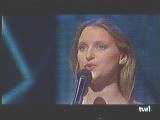 In 1996, in view of the large number of countries
wanting to take part, a new Eurovision Song Contest pre-selection concept was introduced.
The number of participants was limited to 23, including the winning country from the
previous year (Norway). Pre-selection was conducted solely on the basis of audio
recordings. Each national entry, lasting no longer than three minutes, was sent in on
tape. The artists on the audiotapes had to be the same as would appear in the European
final if selected. These recordings were to be forwarded to the European Broadcasting
Union Permanent Services in Geneva. A compilation of all of the songs received on the
prescribed date was made and sent to all participants. Each participating country was to
select a jury of eight members based on the same principle as that used for the European
final, and this jury would then evaluate the entries, allocating points to each one by
secret ballot. The score was then sent to the EBU Permanent Services 24 hours after
receiving the tapes by fax or phone. To avoid possible influences the pre-selection jury
could not be part of the European final jury. The results were announced the next day at
the same time as the draw for the European final running order. The countries selected
were Austria, Belgium, Bosnia-Herzegovina, Croatia, Cyprus, Estonia, Finland, France,
Greece, Iceland, Ireland, Malta, the Netherlands, Poland, Portugal, Slovakia, Slovenia,
Spain, Sweden, Switzerland, Turkey and United Kingdom. The winner of the Grand Prix was
Ireland, which had now set the all-time record for the most wins (seven). The song was
"The voice" and the performer Eimear Quinn. In 1996, in view of the large number of countries
wanting to take part, a new Eurovision Song Contest pre-selection concept was introduced.
The number of participants was limited to 23, including the winning country from the
previous year (Norway). Pre-selection was conducted solely on the basis of audio
recordings. Each national entry, lasting no longer than three minutes, was sent in on
tape. The artists on the audiotapes had to be the same as would appear in the European
final if selected. These recordings were to be forwarded to the European Broadcasting
Union Permanent Services in Geneva. A compilation of all of the songs received on the
prescribed date was made and sent to all participants. Each participating country was to
select a jury of eight members based on the same principle as that used for the European
final, and this jury would then evaluate the entries, allocating points to each one by
secret ballot. The score was then sent to the EBU Permanent Services 24 hours after
receiving the tapes by fax or phone. To avoid possible influences the pre-selection jury
could not be part of the European final jury. The results were announced the next day at
the same time as the draw for the European final running order. The countries selected
were Austria, Belgium, Bosnia-Herzegovina, Croatia, Cyprus, Estonia, Finland, France,
Greece, Iceland, Ireland, Malta, the Netherlands, Poland, Portugal, Slovakia, Slovenia,
Spain, Sweden, Switzerland, Turkey and United Kingdom. The winner of the Grand Prix was
Ireland, which had now set the all-time record for the most wins (seven). The song was
"The voice" and the performer Eimear Quinn. |
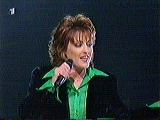 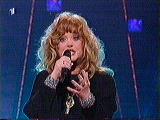 In 1997 the pre-selection system was modified to
allow all countries to participate in the contest at least every two years. The winner of
the previous contest qualified automatically, while the other 17 countries were selected
on the basis of their average points over the last five years (total of points divided by
the number of times the country had participated). If this produced a tie between two or
three countries, the total number of points scored in the most recent years in which the
countries had participated was the deciding factor. The other seven places were assigned
to countries which had not been admitted the previous year but had broadcast the contest
and complied fully with the rules. This system of rotation was designed to reduce the
number of participating countries; two lists emerge from this concept, the Active
Participants and the Passive Participants. The aim was to enable different countries to
enter and affirmative it could enter the contest, if negative, the EBU Permanent Services
would ask the next country in line, and so on. The contest was hosted for the seventh time
in Ireland. The Grand Prix was won by the United Kingdom with "Love shine a
light" performed by Katrina and the Waves, which became an international hit. In 1997 the pre-selection system was modified to
allow all countries to participate in the contest at least every two years. The winner of
the previous contest qualified automatically, while the other 17 countries were selected
on the basis of their average points over the last five years (total of points divided by
the number of times the country had participated). If this produced a tie between two or
three countries, the total number of points scored in the most recent years in which the
countries had participated was the deciding factor. The other seven places were assigned
to countries which had not been admitted the previous year but had broadcast the contest
and complied fully with the rules. This system of rotation was designed to reduce the
number of participating countries; two lists emerge from this concept, the Active
Participants and the Passive Participants. The aim was to enable different countries to
enter and affirmative it could enter the contest, if negative, the EBU Permanent Services
would ask the next country in line, and so on. The contest was hosted for the seventh time
in Ireland. The Grand Prix was won by the United Kingdom with "Love shine a
light" performed by Katrina and the Waves, which became an international hit. |
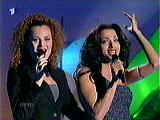 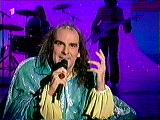 For the 1998 contest the only change to the
pre-selection rule was that the number of places remaining for the Passive Participants
was no longer limited. That year the system of “televoting” was introduced to get the
audience more involved in the show. However, a back-up jury was still required in case
problems emerged during the voting sequence. Each country provided 24 telephone lines with
numbers ending in digits between 01 and 25. Each of these sets of digits represented a
song. The audience was given three minutes to vote, in view of the limited time allotted
to countries to announce their results, which was set at five minutes. To minimize the
risk of people voting for their own song in other countries, the telephone numbers were
set up so that dialling across frontiers was impossible. Furthermore, each household could
only vote three times during the sequence. This new system caused major controversy. Some
people liked it because it brought them closer to the contest, while others were unhappy
about the outcome of the results. A national jury was also required for all countries and
especially those that did not have the infrastructure for televoting. The rules were
applied in the same way as for the back-up juries, but instead of having 8 jurors the
number was increased to 16. All of the results from the juries were sent to the EBU
Permanent Services and certified by a notary who was present during the voting sequence to
prevent fraud. This procedure only applied to the back-up juries if their votes were used
as a result of a problem during televoting. The number of participants remained at 25. The
Former Yugoslav Republic of Macedonia made its debut and Slovakia, Israel, Romania,
Belgium and Finland made their comeback in place of Austria, Bosnia-Herzegovina, Denmark,
Iceland, Italy and Russia, who had to take a one-year break since their average was
insufficient for them to participate. The winner of the Grand Prix made quite an impact,
as it was Dana International, a transsexual from Israel, with the song "Diva".
Another performance unlikely to be forgotten was that of Guildo Horn, with his unusual act
and appearance; he was placed 7th representing Germany with the song "Guildo hat euch
lieb". For the 1998 contest the only change to the
pre-selection rule was that the number of places remaining for the Passive Participants
was no longer limited. That year the system of “televoting” was introduced to get the
audience more involved in the show. However, a back-up jury was still required in case
problems emerged during the voting sequence. Each country provided 24 telephone lines with
numbers ending in digits between 01 and 25. Each of these sets of digits represented a
song. The audience was given three minutes to vote, in view of the limited time allotted
to countries to announce their results, which was set at five minutes. To minimize the
risk of people voting for their own song in other countries, the telephone numbers were
set up so that dialling across frontiers was impossible. Furthermore, each household could
only vote three times during the sequence. This new system caused major controversy. Some
people liked it because it brought them closer to the contest, while others were unhappy
about the outcome of the results. A national jury was also required for all countries and
especially those that did not have the infrastructure for televoting. The rules were
applied in the same way as for the back-up juries, but instead of having 8 jurors the
number was increased to 16. All of the results from the juries were sent to the EBU
Permanent Services and certified by a notary who was present during the voting sequence to
prevent fraud. This procedure only applied to the back-up juries if their votes were used
as a result of a problem during televoting. The number of participants remained at 25. The
Former Yugoslav Republic of Macedonia made its debut and Slovakia, Israel, Romania,
Belgium and Finland made their comeback in place of Austria, Bosnia-Herzegovina, Denmark,
Iceland, Italy and Russia, who had to take a one-year break since their average was
insufficient for them to participate. The winner of the Grand Prix made quite an impact,
as it was Dana International, a transsexual from Israel, with the song "Diva".
Another performance unlikely to be forgotten was that of Guildo Horn, with his unusual act
and appearance; he was placed 7th representing Germany with the song "Guildo hat euch
lieb". |
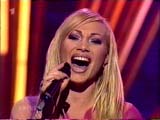 The 1999 contest aroused controversy over the changes in
the language and orchestra rules. The change in the language rule meant that all
participants could choose the language in which they wanted to sing. The change
regarding orchestras was that the producing organization was no longer obliged to provide
one. The number of participants fell to 23. Insufficient points forced Finland, Greece,
the Former Yugoslav Republic of Macedonia, Hungary, Romania, Slovakia and Switzerland to
take a one-year break, and they were replaced by the previous year's Passive Participants
Bosnia-Herzegovina, Denmark, Iceland, Latvia and Lithuania. However, on 23 October, Latvia
decided not to take part as an Active Participant in the 1999 contest. The 1999 contest aroused controversy over the changes in
the language and orchestra rules. The change in the language rule meant that all
participants could choose the language in which they wanted to sing. The change
regarding orchestras was that the producing organization was no longer obliged to provide
one. The number of participants fell to 23. Insufficient points forced Finland, Greece,
the Former Yugoslav Republic of Macedonia, Hungary, Romania, Slovakia and Switzerland to
take a one-year break, and they were replaced by the previous year's Passive Participants
Bosnia-Herzegovina, Denmark, Iceland, Latvia and Lithuania. However, on 23 October, Latvia
decided not to take part as an Active Participant in the 1999 contest. In accordance with the rules, the EBU Permanent
Services then informed the country from the Passive Participants list with the most
points that it could take part in the 44th edition if it so wished. That country was
Hungary, which declined the offer. Next on the list was Portugal, which accepted. New
steps were taken to improve the staging of the contest. First, the EBU Permanent Services
decided to hold a meeting of heads of delegation in Jerusalem two months before the
contest. Second, the Eurovision Song Contest Internet site of the European Broadcasting
Union was updated and improved with features such as live video clips of the upcoming
contest entries. Third, the EBU Permanent Services tried to put together a compilation CD
of the 1999 entries for the benefit of Kosovo refugees. Unfortunately, this CD could not
be released due to problems with rights and timing. The Grand Prix was awarded to Sweden
with the song "Take me to your heaven", performed by Charlotte Nilsson. |
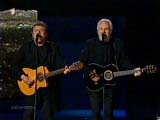 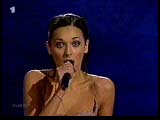 The 2000 contest was held in Stockholm’s prestigious Globe Arena
before an audience of 12'000. The number of participants increased to 24.
Bosnia-Herzegovina, Lithuania, Portugal, Poland and Slovakia were forced to take a
one-year break due to their having gained an insufficient number of points in the previous
year’s contest. Finland, the Former Yugoslav Republic of Macedonia, Romania, the Russian
Federation, and Switzerland returned, and Latvia joined the contest for the first time.
This year’s contest saw the introduction of two important new concepts. Firstly, a
compilation CD of all 24 entries was made and released commercially. Secondly, Microsoft
broadcasted the contest live on the Internet. The Grand Prix was awarded to Denmark with
the song "Fly on the wings of love" performed by the Olsen Brothers. The 2000 contest was held in Stockholm’s prestigious Globe Arena
before an audience of 12'000. The number of participants increased to 24.
Bosnia-Herzegovina, Lithuania, Portugal, Poland and Slovakia were forced to take a
one-year break due to their having gained an insufficient number of points in the previous
year’s contest. Finland, the Former Yugoslav Republic of Macedonia, Romania, the Russian
Federation, and Switzerland returned, and Latvia joined the contest for the first time.
This year’s contest saw the introduction of two important new concepts. Firstly, a
compilation CD of all 24 entries was made and released commercially. Secondly, Microsoft
broadcasted the contest live on the Internet. The Grand Prix was awarded to Denmark with
the song "Fly on the wings of love" performed by the Olsen Brothers. |

 The 1990 contest was staged in Zagreb, Yugoslavia,
with the same 22 participants as the previous year. The only major change was that the
“postcards” between the songs showed the artists in the country they represented. This
had not happened since 1982. The winner of the Grand Prix was well-known artist Toto
Cutugno representing Italy with the song "Insieme 1992".
The 1990 contest was staged in Zagreb, Yugoslavia,
with the same 22 participants as the previous year. The only major change was that the
“postcards” between the songs showed the artists in the country they represented. This
had not happened since 1982. The winner of the Grand Prix was well-known artist Toto
Cutugno representing Italy with the song "Insieme 1992".
 In the 1991 contest the number
of participants was the same as in 1990, except that the Netherlands did not participate
due to their national Remembrance Day which opened the way for Malta to join. The contest
was held in Rome. Unlike the previous year, the postcards between the songs showed
monuments of the host city with the artists who were to feature next in the contest
singing a well-known Italian song. Problems occurred, partly because one of the
presenters, Toto Cutugno, had language difficulties and appeared not to have fully grasped
the voting procedure and partly for technical reasons. This resulted in Mr. Frank Naef,
the European Broadcasting Union scrutineer at the time, having to take over during the
voting session. That year, the Grand Prix was won by two countries, France with
"C'est le dernier qui a parlé qui a raison", performed by Amina, and Sweden
with "Fangad av en stormvind" sung by Carola. The rules stipulating that in case
of a tie for the first place, the country which obtained the highest score the most often
(12 points, 10 points and so on) would win, Sweden did it.
In the 1991 contest the number
of participants was the same as in 1990, except that the Netherlands did not participate
due to their national Remembrance Day which opened the way for Malta to join. The contest
was held in Rome. Unlike the previous year, the postcards between the songs showed
monuments of the host city with the artists who were to feature next in the contest
singing a well-known Italian song. Problems occurred, partly because one of the
presenters, Toto Cutugno, had language difficulties and appeared not to have fully grasped
the voting procedure and partly for technical reasons. This resulted in Mr. Frank Naef,
the European Broadcasting Union scrutineer at the time, having to take over during the
voting session. That year, the Grand Prix was won by two countries, France with
"C'est le dernier qui a parlé qui a raison", performed by Amina, and Sweden
with "Fangad av en stormvind" sung by Carola. The rules stipulating that in case
of a tie for the first place, the country which obtained the highest score the most often
(12 points, 10 points and so on) would win, Sweden did it. In the 1992 contest, the number of participating
countries increased to 23, with the return of the Netherlands. The postcards were changed
again, with the country presentations showing Sweden’s most popular beauty spots. The
winner of the contest was Ireland, with "Why me" performed by Linda Martin. The
song and music were written by Johnny Logan, who became the first artist to win the
contest three times.
In the 1992 contest, the number of participating
countries increased to 23, with the return of the Netherlands. The postcards were changed
again, with the country presentations showing Sweden’s most popular beauty spots. The
winner of the contest was Ireland, with "Why me" performed by Linda Martin. The
song and music were written by Johnny Logan, who became the first artist to win the
contest three times.  The 1993 contest saw major changes, with three
new countries joining the show. Three of the former Yugoslavian republics which had
proclaimed their independence – Bosnia-Herzegovina, Croatia and Slovenia –
swelled the number of participants to 25. The postcards showed each country’s
artists filmed in Ireland’s most renowned beauty spots, which they had visited during
the rehearsal week. That year the host broadcaster of the contest became the winner for
the fifth time with the song "In your eyes", performed by Niamh Kavanagh and her
vocalists.
The 1993 contest saw major changes, with three
new countries joining the show. Three of the former Yugoslavian republics which had
proclaimed their independence – Bosnia-Herzegovina, Croatia and Slovenia –
swelled the number of participants to 25. The postcards showed each country’s
artists filmed in Ireland’s most renowned beauty spots, which they had visited during
the rehearsal week. That year the host broadcaster of the contest became the winner for
the fifth time with the song "In your eyes", performed by Niamh Kavanagh and her
vocalists. 
 Unlike
past host broadcasters who had won the contest twice in a row, Ireland decided to play
host again in 1994. Even with the withdrawal of such countries as Belgium, Denmark,
Israel, Italy, Luxembourg, Slovenia and Turkey, the number of participants remained the
same. They were replaced by newcomers Estonia, Hungary, Lithuania, Poland, Romania, the
Russian Federation and Slovakia. For the third time in a row Ireland was the winner of the
Grand Prix, with an all-time record of 226 points for the song "Rock'n roll
kids" performed by Paul Harrington and Charlie McGettigan.
Unlike
past host broadcasters who had won the contest twice in a row, Ireland decided to play
host again in 1994. Even with the withdrawal of such countries as Belgium, Denmark,
Israel, Italy, Luxembourg, Slovenia and Turkey, the number of participants remained the
same. They were replaced by newcomers Estonia, Hungary, Lithuania, Poland, Romania, the
Russian Federation and Slovakia. For the third time in a row Ireland was the winner of the
Grand Prix, with an all-time record of 226 points for the song "Rock'n roll
kids" performed by Paul Harrington and Charlie McGettigan.
 In 1995, Ireland
became the only country to be host broadcaster for a third time. With the withdrawal of
Estonia, Finland, Lithuania, the Netherlands, Romania, Slovakia and Switzerland, the
number of participants would have decreased to 18, but the return of Belgium, Denmark,
Israel, Slovenia and Turkey brought the number back to a respectable 23. Christine Marchal
took over the coordination of the contest at the EBU Permanent Services. The Grand Prix
was awarded to Norway with the song “Nocturne”, performed by Secret Garden. .
In 1995, Ireland
became the only country to be host broadcaster for a third time. With the withdrawal of
Estonia, Finland, Lithuania, the Netherlands, Romania, Slovakia and Switzerland, the
number of participants would have decreased to 18, but the return of Belgium, Denmark,
Israel, Slovenia and Turkey brought the number back to a respectable 23. Christine Marchal
took over the coordination of the contest at the EBU Permanent Services. The Grand Prix
was awarded to Norway with the song “Nocturne”, performed by Secret Garden. . In 1996, in view of the large number of countries
wanting to take part, a new Eurovision Song Contest pre-selection concept was introduced.
The number of participants was limited to 23, including the winning country from the
previous year (Norway). Pre-selection was conducted solely on the basis of audio
recordings. Each national entry, lasting no longer than three minutes, was sent in on
tape. The artists on the audiotapes had to be the same as would appear in the European
final if selected. These recordings were to be forwarded to the European Broadcasting
Union Permanent Services in Geneva. A compilation of all of the songs received on the
prescribed date was made and sent to all participants. Each participating country was to
select a jury of eight members based on the same principle as that used for the European
final, and this jury would then evaluate the entries, allocating points to each one by
secret ballot. The score was then sent to the EBU Permanent Services 24 hours after
receiving the tapes by fax or phone. To avoid possible influences the pre-selection jury
could not be part of the European final jury. The results were announced the next day at
the same time as the draw for the European final running order. The countries selected
were Austria, Belgium, Bosnia-Herzegovina, Croatia, Cyprus, Estonia, Finland, France,
Greece, Iceland, Ireland, Malta, the Netherlands, Poland, Portugal, Slovakia, Slovenia,
Spain, Sweden, Switzerland, Turkey and United Kingdom. The winner of the Grand Prix was
Ireland, which had now set the all-time record for the most wins (seven). The song was
"The voice" and the performer Eimear Quinn.
In 1996, in view of the large number of countries
wanting to take part, a new Eurovision Song Contest pre-selection concept was introduced.
The number of participants was limited to 23, including the winning country from the
previous year (Norway). Pre-selection was conducted solely on the basis of audio
recordings. Each national entry, lasting no longer than three minutes, was sent in on
tape. The artists on the audiotapes had to be the same as would appear in the European
final if selected. These recordings were to be forwarded to the European Broadcasting
Union Permanent Services in Geneva. A compilation of all of the songs received on the
prescribed date was made and sent to all participants. Each participating country was to
select a jury of eight members based on the same principle as that used for the European
final, and this jury would then evaluate the entries, allocating points to each one by
secret ballot. The score was then sent to the EBU Permanent Services 24 hours after
receiving the tapes by fax or phone. To avoid possible influences the pre-selection jury
could not be part of the European final jury. The results were announced the next day at
the same time as the draw for the European final running order. The countries selected
were Austria, Belgium, Bosnia-Herzegovina, Croatia, Cyprus, Estonia, Finland, France,
Greece, Iceland, Ireland, Malta, the Netherlands, Poland, Portugal, Slovakia, Slovenia,
Spain, Sweden, Switzerland, Turkey and United Kingdom. The winner of the Grand Prix was
Ireland, which had now set the all-time record for the most wins (seven). The song was
"The voice" and the performer Eimear Quinn.
 In 1997 the pre-selection system was modified to
allow all countries to participate in the contest at least every two years. The winner of
the previous contest qualified automatically, while the other 17 countries were selected
on the basis of their average points over the last five years (total of points divided by
the number of times the country had participated). If this produced a tie between two or
three countries, the total number of points scored in the most recent years in which the
countries had participated was the deciding factor. The other seven places were assigned
to countries which had not been admitted the previous year but had broadcast the contest
and complied fully with the rules. This system of rotation was designed to reduce the
number of participating countries; two lists emerge from this concept, the Active
Participants and the Passive Participants. The aim was to enable different countries to
enter and affirmative it could enter the contest, if negative, the EBU Permanent Services
would ask the next country in line, and so on. The contest was hosted for the seventh time
in Ireland. The Grand Prix was won by the United Kingdom with "Love shine a
light" performed by Katrina and the Waves, which became an international hit.
In 1997 the pre-selection system was modified to
allow all countries to participate in the contest at least every two years. The winner of
the previous contest qualified automatically, while the other 17 countries were selected
on the basis of their average points over the last five years (total of points divided by
the number of times the country had participated). If this produced a tie between two or
three countries, the total number of points scored in the most recent years in which the
countries had participated was the deciding factor. The other seven places were assigned
to countries which had not been admitted the previous year but had broadcast the contest
and complied fully with the rules. This system of rotation was designed to reduce the
number of participating countries; two lists emerge from this concept, the Active
Participants and the Passive Participants. The aim was to enable different countries to
enter and affirmative it could enter the contest, if negative, the EBU Permanent Services
would ask the next country in line, and so on. The contest was hosted for the seventh time
in Ireland. The Grand Prix was won by the United Kingdom with "Love shine a
light" performed by Katrina and the Waves, which became an international hit.
 For the 1998 contest the only change to the
pre-selection rule was that the number of places remaining for the Passive Participants
was no longer limited. That year the system of “televoting” was introduced to get the
audience more involved in the show. However, a back-up jury was still required in case
problems emerged during the voting sequence. Each country provided 24 telephone lines with
numbers ending in digits between 01 and 25. Each of these sets of digits represented a
song. The audience was given three minutes to vote, in view of the limited time allotted
to countries to announce their results, which was set at five minutes. To minimize the
risk of people voting for their own song in other countries, the telephone numbers were
set up so that dialling across frontiers was impossible. Furthermore, each household could
only vote three times during the sequence. This new system caused major controversy. Some
people liked it because it brought them closer to the contest, while others were unhappy
about the outcome of the results. A national jury was also required for all countries and
especially those that did not have the infrastructure for televoting. The rules were
applied in the same way as for the back-up juries, but instead of having 8 jurors the
number was increased to 16. All of the results from the juries were sent to the EBU
Permanent Services and certified by a notary who was present during the voting sequence to
prevent fraud. This procedure only applied to the back-up juries if their votes were used
as a result of a problem during televoting. The number of participants remained at 25. The
Former Yugoslav Republic of Macedonia made its debut and Slovakia, Israel, Romania,
Belgium and Finland made their comeback in place of Austria, Bosnia-Herzegovina, Denmark,
Iceland, Italy and Russia, who had to take a one-year break since their average was
insufficient for them to participate. The winner of the Grand Prix made quite an impact,
as it was Dana International, a transsexual from Israel, with the song "Diva".
Another performance unlikely to be forgotten was that of Guildo Horn, with his unusual act
and appearance; he was placed 7th representing Germany with the song "Guildo hat euch
lieb".
For the 1998 contest the only change to the
pre-selection rule was that the number of places remaining for the Passive Participants
was no longer limited. That year the system of “televoting” was introduced to get the
audience more involved in the show. However, a back-up jury was still required in case
problems emerged during the voting sequence. Each country provided 24 telephone lines with
numbers ending in digits between 01 and 25. Each of these sets of digits represented a
song. The audience was given three minutes to vote, in view of the limited time allotted
to countries to announce their results, which was set at five minutes. To minimize the
risk of people voting for their own song in other countries, the telephone numbers were
set up so that dialling across frontiers was impossible. Furthermore, each household could
only vote three times during the sequence. This new system caused major controversy. Some
people liked it because it brought them closer to the contest, while others were unhappy
about the outcome of the results. A national jury was also required for all countries and
especially those that did not have the infrastructure for televoting. The rules were
applied in the same way as for the back-up juries, but instead of having 8 jurors the
number was increased to 16. All of the results from the juries were sent to the EBU
Permanent Services and certified by a notary who was present during the voting sequence to
prevent fraud. This procedure only applied to the back-up juries if their votes were used
as a result of a problem during televoting. The number of participants remained at 25. The
Former Yugoslav Republic of Macedonia made its debut and Slovakia, Israel, Romania,
Belgium and Finland made their comeback in place of Austria, Bosnia-Herzegovina, Denmark,
Iceland, Italy and Russia, who had to take a one-year break since their average was
insufficient for them to participate. The winner of the Grand Prix made quite an impact,
as it was Dana International, a transsexual from Israel, with the song "Diva".
Another performance unlikely to be forgotten was that of Guildo Horn, with his unusual act
and appearance; he was placed 7th representing Germany with the song "Guildo hat euch
lieb". The 1999 contest aroused controversy over the changes in
the language and orchestra rules. The change in the language rule meant that all
participants could choose the language in which they wanted to sing. The change
regarding orchestras was that the producing organization was no longer obliged to provide
one. The number of participants fell to 23. Insufficient points forced Finland, Greece,
the Former Yugoslav Republic of Macedonia, Hungary, Romania, Slovakia and Switzerland to
take a one-year break, and they were replaced by the previous year's Passive Participants
Bosnia-Herzegovina, Denmark, Iceland, Latvia and Lithuania. However, on 23 October, Latvia
decided not to take part as an Active Participant in the 1999 contest.
The 1999 contest aroused controversy over the changes in
the language and orchestra rules. The change in the language rule meant that all
participants could choose the language in which they wanted to sing. The change
regarding orchestras was that the producing organization was no longer obliged to provide
one. The number of participants fell to 23. Insufficient points forced Finland, Greece,
the Former Yugoslav Republic of Macedonia, Hungary, Romania, Slovakia and Switzerland to
take a one-year break, and they were replaced by the previous year's Passive Participants
Bosnia-Herzegovina, Denmark, Iceland, Latvia and Lithuania. However, on 23 October, Latvia
decided not to take part as an Active Participant in the 1999 contest. 
 The 2000 contest was held in Stockholm’s prestigious Globe Arena
before an audience of 12'000. The number of participants increased to 24.
Bosnia-Herzegovina, Lithuania, Portugal, Poland and Slovakia were forced to take a
one-year break due to their having gained an insufficient number of points in the previous
year’s contest. Finland, the Former Yugoslav Republic of Macedonia, Romania, the Russian
Federation, and Switzerland returned, and Latvia joined the contest for the first time.
This year’s contest saw the introduction of two important new concepts. Firstly, a
compilation CD of all 24 entries was made and released commercially. Secondly, Microsoft
broadcasted the contest live on the Internet. The Grand Prix was awarded to Denmark with
the song "Fly on the wings of love" performed by the Olsen Brothers.
The 2000 contest was held in Stockholm’s prestigious Globe Arena
before an audience of 12'000. The number of participants increased to 24.
Bosnia-Herzegovina, Lithuania, Portugal, Poland and Slovakia were forced to take a
one-year break due to their having gained an insufficient number of points in the previous
year’s contest. Finland, the Former Yugoslav Republic of Macedonia, Romania, the Russian
Federation, and Switzerland returned, and Latvia joined the contest for the first time.
This year’s contest saw the introduction of two important new concepts. Firstly, a
compilation CD of all 24 entries was made and released commercially. Secondly, Microsoft
broadcasted the contest live on the Internet. The Grand Prix was awarded to Denmark with
the song "Fly on the wings of love" performed by the Olsen Brothers.